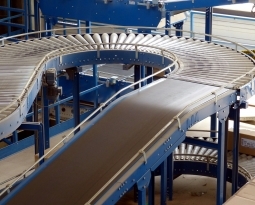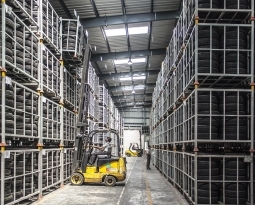Minnesota Patent of the Month – January 2022
Most people would likely agree that the litter bin is the main downfall of having a pet cat. While kitties are great for playing, cuddling, and companionship, having to scoop out the litter bin regularly is not a task anyone looks forward to. Not only do they often smell, but the plastic trays, liners, and scoopers are all terrible for the environment.
While there are some attempts to make this chore less of a burden, through liners, and automatic scoopers, they don’t effectively address the smell or the impact on the environment. Creative PetWorks, LLC decided it was time for a solution that would save time, reduce impact on the environment, and reduce the unhealthy odor and bacteria build up seen in traditional litter trays.
Their solution uses a tray with a solid bottom, and liners with small slots. The liner can be placed in the tray, litter poured in and set out for the kitty to use. The idea is to use clumping litter so that the tray can simply be lifted, allowing the unused litter to filter through, and holding the used clumps in the liner. This way you don’t have to go scooping through the bin. Both the tray and lines are designed and manufactured from sustainable materials including 100% post consumer waste recycled cardboard. The design is much simpler than commercially available counterparts – such as plastic liners with a series of holes meant to sift the lift. These plastic liners require complex injection molding manufacturing and are still often ineffective as the holes clog easily. Creative PetWorks’ design uses horizontal slots which are sized to prevent clogging while still trapping litter.
The material and manufacturing method have significantly reduced environmental impacts, can be easily biodegraded when disposed of, and still maintain the structural support needed in use. Their Kitty Sift solution saves time which can be better spent playing with your kitty.
Are you developing new technology for an existing application? Did you know your development work could be eligible for the R&D Tax Credit and you can receive up to 14% back on your expenses? Even if your development isn’t successful your work may still qualify for R&D credits (i.e. you don’t need to have a patent to qualify). To find out more, please contact a Swanson Reed R&D Specialist today or check out our free online eligibility test.
Who We Are:
Swanson Reed is one of the U.S.’ largest Specialist R&D tax advisory firms. We manage all facets of the R&D tax credit program, from claim preparation and audit compliance to claim disputes.
Swanson Reed regularly hosts free webinars and provides free IRS CE and CPE credits for CPAs. For more information please visit us at www.swansonreed.com/webinars or contact your usual Swanson Reed representative.

















